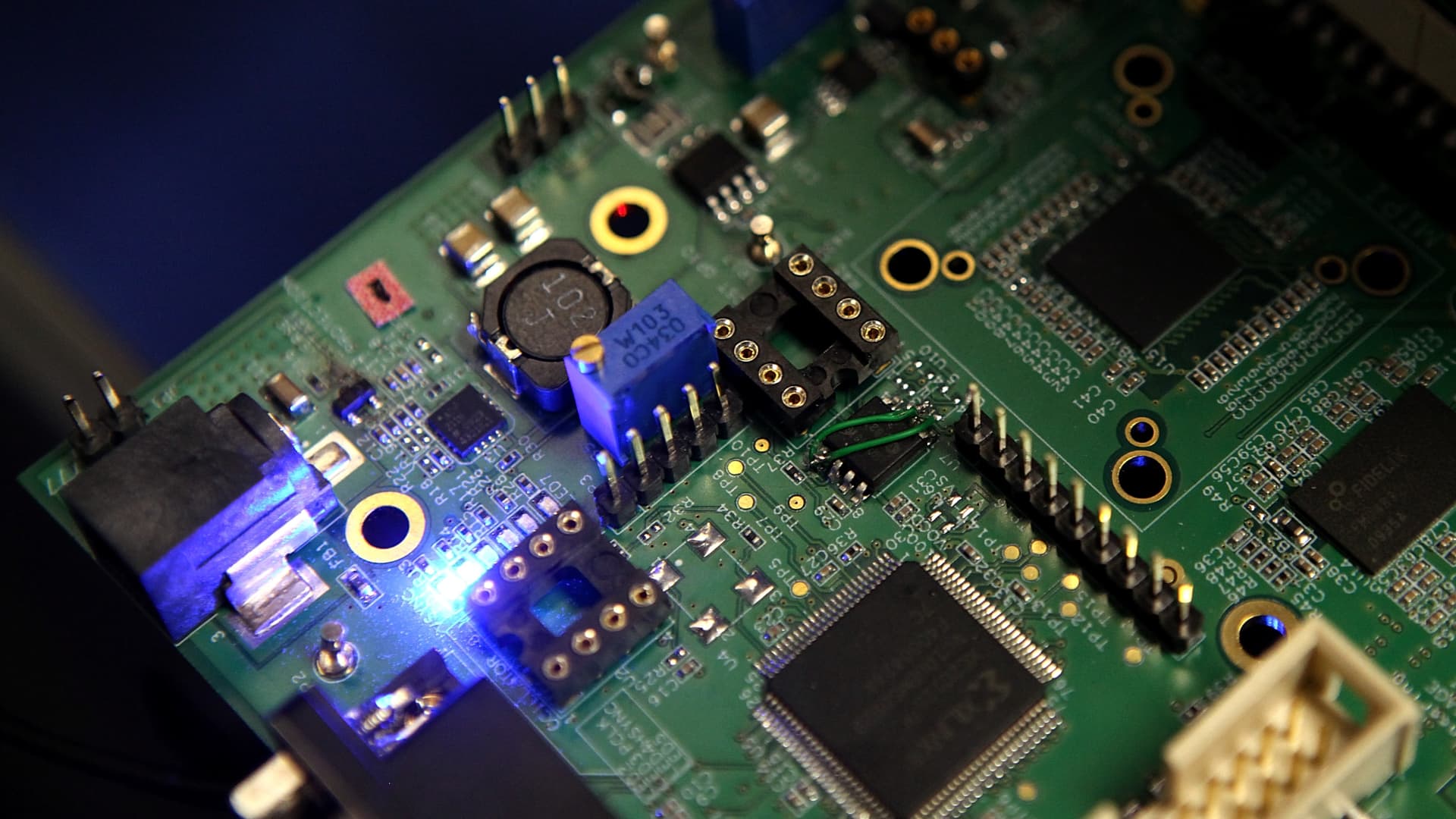
Semiconductor stocks have been beaten down all year — thanks to waning chip demand and the easing of supply chain disruptions that hobbled the sector at the peak of the Covid pandemic. The iShares Semiconductor ETF is down around 44% year-to-date — a bloodbath even by this year’s bear market standard. But the massive sell-off in chip stocks this year is also an opportunity for bargain hunters, particularly those with a long-term view on the importance of chips to secular trends such as 5G, electrification and artificial intelligence. Hedge fund manager David Neuhauser said he believes Intel now looks “really inviting,” with the company having lost a significant chunk of its market value so far this year. The founder and chief investment officer of Livermore Partners said on CNBC’s ” Street Signs Asia ” on Monday that Intel has “a lot of value” and looks “really attractive” with its share price down 50% from its high. Moreover, the company pays a dividend yield of more than 5%, so investors are “getting paid to wait” while the share price recovers, he added. “It’s also a company with a very strong U.S. footprint and beyond. So, if there was one stock I would look at, it would be Intel today,” Neuhauser said. But investors hoping for a quick recovery in Intel’s share price will be disappointed, he said. He urged investors to take a longer-term view on their investment given the ongoing geopolitical tensions around the world. “If your time frame is like a decade from here, obviously, there’s some great things you can buy as an investor and as we described, things like Intel or even Nvidia down where they are, but if you are really thinking about this over the next say six months or one year time horizon, I think without the dividend yield, it’s going to be tough to think that you’re going to make a dramatic return on your investment today,” Neuhauser said. Longer-term challenges The beleaguered sector had a reprieve from the Chips and Science Act — a bill that includes more than $52 billion in funding for U.S. chipmakers, as well as billions more in tax credits to encourage investment in semiconductor manufacturing. But a slew of new export controls introduced earlier this month aimed at cutting China off from obtaining or manufacturing key chips and components for supercomputers sent shares of chip makers tumbling once more. Against the backdrop of these macro headwinds and intensifying competition in the sector, chip companies are looking to bolster their position. U.S. chipmaker Broadcom , for instance, is reportedly seeking early European Union antitrust approval for its proposed $61 billion purchase of cloud computing company VMware , according to media reports. If completed, the deal, announced in May, will be one of the largest technology acquisitions of all time . “I think the news you’re seeing in the sector is something that is going to be very onerous for the most part because you’re seeing this export ban. And ultimately, that’s going to cause a retrenchment of a lot of these companies in terms of their revenue guidance, margins, and the likes,” Neuhauser said. “It’s going to be tough going forward and if things exist in their current format, you can start to see further consolidation occur where companies try to further margins through scale, more buyouts such as the VMware acquisition is something that’s still out there. That’s a very meaningful deal and I think you can see more of those to come in the months and years ahead,” he added.
